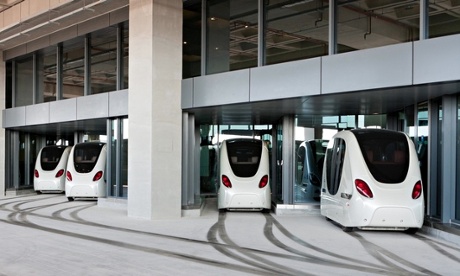
Driverless cars. They sound counterintuitive, and if you’re concerned about getting into one then you’re in good company: our recent survey found that 39% of people wouldn’t even consider it.
The good news for the governments and manufacturers backing a driverless car revolution, however, is that 46% of us would appear to have no qualms about being driven around by a computer. With testing due to start this year in Bristol, Coventry, Greenwich and Milton Keynes, it’s now vital for the UK government to win over opponents and “don’t knows” alike.
Unfortunately, much of the debate to date has focused on the technology and what motorists won’t be allowed to do. In contrast, very little attention has been paid to the fact that driverless cars have the potential to make life better for millions of people worldwide.
Driverless cars are part of the intelligent transport mix, which in turn is one of the key elements of the smart cities that governments are aiming to build. Encouraging this will enable city dwellers of the future to be able to access targeted, fast and efficient transport systems. When we asked 300 business leaders about smart city technologies, they said that intelligent transport systems would have the biggest impact on the wellbeing of citizens and economic growth, (over building efficiency, smart grids and energy storage).
One major impact of driverless cars is that car ownership will drop, as it has done in London when measured by car ownership per household. Cars will be used for specific journey types and, often, hired for short periods. That vision of the future could have a profound effect in a number of areas.
For example, it’s a well-known fact that every year about 1.3 million people are killed in road traffic accidents globally. Those deaths are just the tip of the iceberg: injuries can add up to a staggering 50m per annum, according to the Association for Safe International Road Travel. Imagine the resources tied up in dealing with that number of injuries: first responders, transport and logistics, heating, medical care – the list goes on. The cost of all of this is estimated at about $518bn (£345bn) per year.
With fewer cars on the road and intelligent sensor technology looking out for pedestrians and other road users, the number of road accident deaths and injuries could drop dramatically. The resulting reduction in expenditure and shattered lives would be transformational, particularly for poorer countries.
Another high-profile change could be a reduction in fuel consumption, as well as carbon and particulate emissions. Driverless cars will be programmed to drive efficiently and take the most economical route available. More than that, cars will work together to avoid congestion, potentially eliminating gridlock. On longer journeys it is likely that cars will travel in controlled convoys, saving even more fuel and reducing carbon and damaging particulate levels.
There are other benefits, too. For example, increasing mobility and safety for the blind, elderly and disabled. There’s also the potential for stress reduction and the eradication of road rage.
These are benefits worth having, but before they can be realised there’s a lot of work to do. Persuading people that driverless cars are a good thing is just part of the picture. Our 300 business leaders identified a number of barriers to the introduction of intelligent transport systems, including lack of investment and incentives to invest, outdated urban infrastructure and a regulatory framework that is not fit for purpose.
The latter was illustrated by recent reports (pdf) that drink driving would still be an offence for those in charge of driverless cars. That piece of common sense illustrates the piecemeal nature of applying existing laws to innovative technologies. It’s good for the public to know that driverless cars will have a sober and alert human ready to take control if anything goes wrong, but what about liability, licences, privacy (imagine all that journey data) and so on? Until we have comprehensive answers around regulation it will be difficult to convince people that the government is taking driverless cars seriously, and if the government doesn’t why should they?
What we need is for governments and car manufacturers to work together to establish common standards. Driverless cars could be a huge force for good, but buying into the concept is a huge leap for many. However, an investment in helping people understand the benefits now will pay major dividends in the future.
Simon Hobday is energy partner at Osborne Clarke
The technology and innovation hub is funded by BT. All content is editorially independent except for pieces labelled “brought to you by”. Find out more here.
Join the community of sustainability professionals and experts. Become a GSB member to get more stories like this direct to your inbox.

